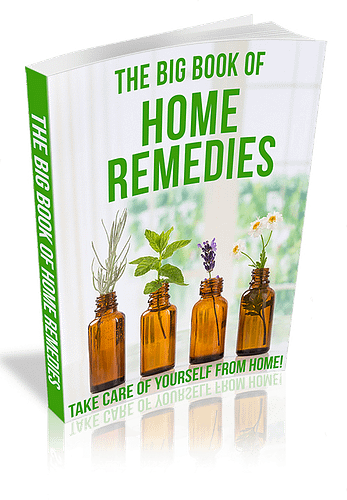Muscle cramps are sudden, involuntary contractions or spasms in one or more muscles that can cause discomfort, pain, and even immobility.
They can occur in any part of the body but are most commonly experienced in the legs, feet, and hands.
Muscle cramps can occur for various reasons, such as dehydration, muscle strain, overuse of muscles, and nutrient deficiency.
Regardless of the cause, muscle cramps can be uncomfortable and interfere with your daily life.
Fortunately, many effective home remedies can help alleviate muscle cramps and prevent them from occurring in the first place.
Understanding Muscle Cramps
Before delving into home remedies for muscle cramps, it's important to understand what causes them and how they occur.
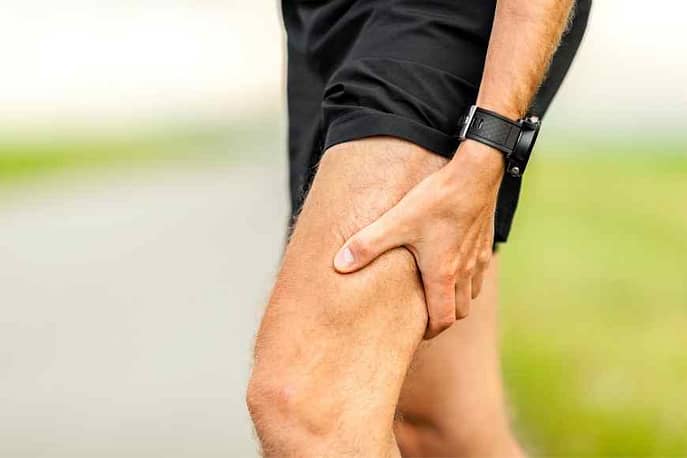
During a muscle cramp, the muscle fibers contract involuntarily, which can lead to a sharp, intense pain.
There are different types of muscle cramps, including:
- Nocturnal cramps occur at night, usually in the legs and feet, and can wake you up from sleep.
- Exercise-associated cramps occur during or after exercise, particularly in the legs and feet.
- Heat cramps occur in hot weather or during intense exercise when the body loses electrolytes and fluids.
- Rest cramps happen when you're sitting or lying down for an extended period.
Muscle cramps can affect anyone, but some people may be more at risk than others.
These include athletes, pregnant women, older adults, and people with certain medical conditions.
Home Remedies for Muscle Cramps
The good news is that many home remedies can help alleviate muscle cramps and prevent them from occurring in the first place. Here are some effective remedies you can try:
#1 Stretching Exercises
Stretching exercises can help relieve muscle cramps by elongating the muscle fibers and promoting blood flow.
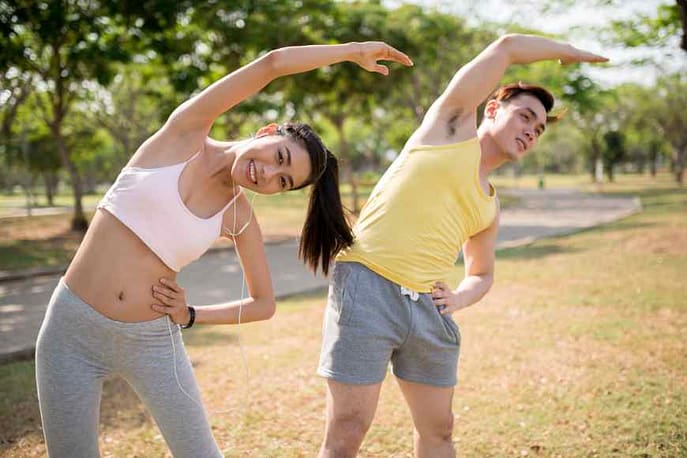
There are different types of stretching exercises you can try, including:
- Static stretching involves holding a stretch position for 15-30 seconds without moving the joint.
- Dynamic stretching: This involves stretching through movement, such as lunges, squats, or leg swings.
- Proprioceptive neuromuscular facilitation (PNF) stretching involves contracting and relaxing the muscle while stretching.
It's important to perform stretching exercises correctly to avoid further injury. Always warm up before stretching, and avoid bouncing or jerking movements.
#2 Hot and Cold Compresses
Hot and cold compresses can help alleviate muscle cramps by promoting blood flow and reducing inflammation.
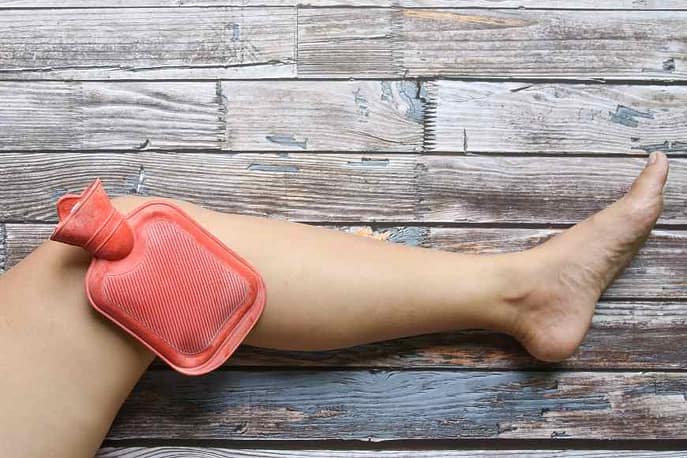
Hot compresses can help relax tense muscles and increase blood flow, while cold compresses can help numb pain and reduce inflammation.
To use hot and cold compresses, simply apply a hot or cold pack to the affected area for 15-20 minutes at a time. You can repeat this several times a day, as needed.
#3 Massage Therapy
Massage therapy can help alleviate muscle cramps by promoting blood flow, reducing inflammation, and relaxing tense muscles.
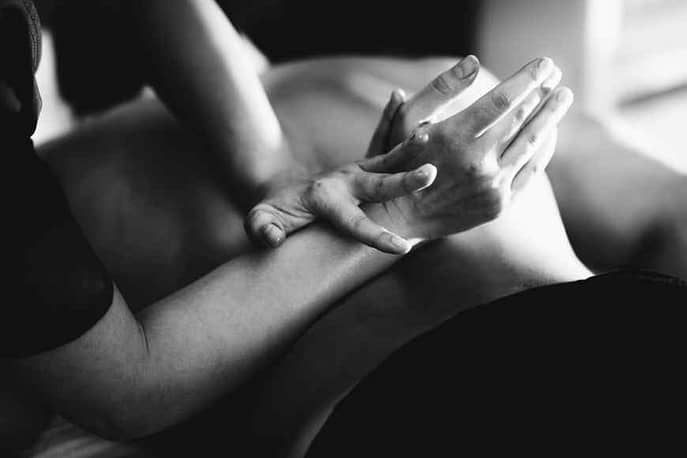
There are different types of massage techniques you can try, including:
- Swedish massage: This involves long, smooth strokes, kneading, and circular movements to promote relaxation.
- Deep tissue massage involves more intense pressure to target deeper layers of muscle tissue.
- Trigger point massage: This consists in applying pressure to specific points in the muscle to release tension.
Massage therapy can be performed by a professional massage therapist or self-administered using a foam roller or massage ball.
#4 Hydration
Dehydration is a common cause of muscle cramps, as it can lead to an imbalance of electrolytes and fluids in the body.
Staying properly hydrated can help prevent muscle cramps from occurring. The amount of fluid you need depends on your age, gender, activity level, and climate.
As a general rule, aim for at least 8 cups (64 ounces) of water a day.
You may need more if you're exercising or in a hot climate.
#5 Diet and Nutrition
Proper nutrition can also play a role in preventing and alleviating muscle cramps.
Certain foods can help replenish electrolytes and nutrients that may be depleted during exercise or other activities.
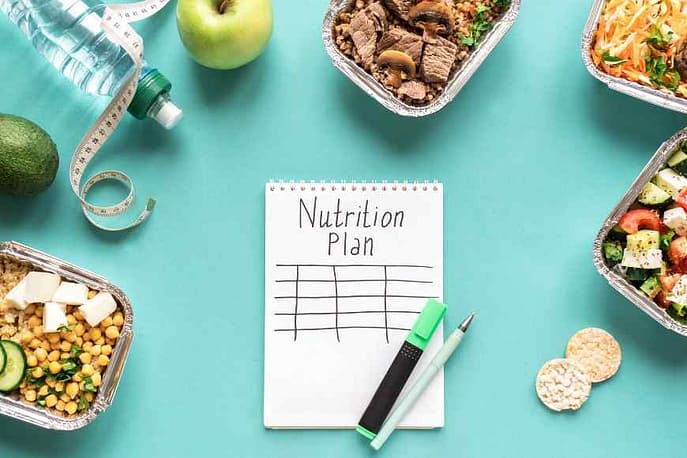
Foods rich in potassium, magnesium, and calcium can be particularly beneficial. Examples include:
- Bananas, avocados, and sweet potatoes (potassium)
- Spinach, almonds, and cashews (magnesium)
- Dairy products, leafy greens, and fortified cereals (calcium)
On the other hand, certain foods can also trigger muscle cramps.
These include alcohol, caffeine, and foods high in sugar or processed carbohydrates.
Avoiding these foods can help prevent muscle cramps from occurring.
#6 Natural Supplements
Certain natural supplements may also help alleviate muscle cramps.
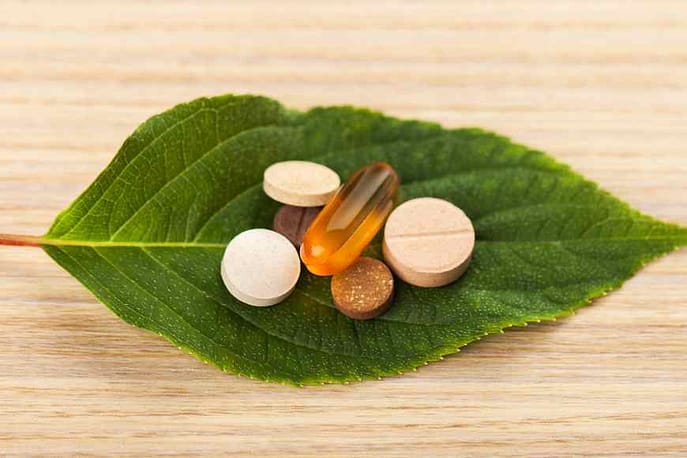
These include:
- Magnesium supplements: Magnesium is an essential mineral that helps regulate muscle and nerve function. Low levels of magnesium can contribute to muscle cramps. Taking a magnesium supplement can help alleviate cramps and prevent them from occurring.
- Vitamin B supplements: Vitamin B6 and B12 are important for nerve and muscle function. Taking a vitamin B supplement can help alleviate muscle cramps and prevent them from occurring.
- Herbal remedies: Some herbal remedies, such as valerian root and chamomile, may help alleviate muscle cramps by promoting relaxation and reducing inflammation. However, more research is needed to confirm their effectiveness.
It's important to talk to your doctor before taking any supplements, as they may interact with other medications or medical conditions.
#7 Rest and Relaxation
Rest and relaxation can also play a role in preventing and alleviating muscle cramps.
For example, getting enough sleep, taking breaks during exercise or other activities, and practicing stress-reduction techniques (such as deep breathing or meditation) can help reduce muscle tension and prevent cramps from occurring.
Avoiding Triggers
Finally, it's crucial to identify and avoid triggers that may contribute to muscle cramps.
Common triggers include:
- Dehydration
- Electrolyte imbalances
- Overuse of muscles
- Poor circulation
- Certain medications
Avoiding these triggers can help prevent muscle cramps from occurring.
Prevention and Management of Muscle Cramps
In addition to home remedies, you can make some lifestyle changes to prevent and manage muscle cramps.
These include:
Prevention Tips
- Hydration and electrolyte balance: Drink plenty of fluids and eat foods rich in electrolytes (such as potassium, magnesium, and calcium) to maintain a healthy balance.
- Proper nutrition: Eat a balanced diet that includes plenty of fruits, vegetables, lean proteins, and whole grains.
- Regular exercise: Regular exercise keeps your muscles strong and flexible.
- Avoiding overexertion: Don't push yourself too hard during exercise or other activities.
Management Tips
- Resting and avoiding activities that trigger muscle cramps: Take breaks during exercise or other activities, and prevent activities that may overuse your muscles.
- Hot and cold therapy: Apply hot or cold compresses to the affected area to alleviate pain and promote blood flow.
- Over-the-counter medications: Nonsteroidal anti-inflammatory drugs (NSAIDs) such as ibuprofen or naproxen may help relieve pain and reduce inflammation.
When to Seek Medical Help
While most cases of muscle cramps can be managed with home remedies and lifestyle changes, there are certain situations where you should seek medical attention.
These include:
- Frequent muscle cramps: If you're experiencing muscle cramps regularly, despite trying home remedies and making lifestyle changes, it may be a sign of an underlying medical condition.
- Severe muscle cramps: If your muscle cramps are particularly intense and interfere with your daily life, seeking medical attention is essential.
- Accompanying symptoms: If your muscle cramps are accompanied by other symptoms, such as muscle weakness, swelling, or redness, it may be a sign of a more serious condition.
Conclusion
Muscle cramps can be uncomfortable and painful, but many effective home remedies and lifestyle changes can help prevent and alleviate them.
By staying hydrated, eating a balanced diet, getting enough rest and exercise, and trying techniques such as stretching, massage, and hot and cold therapy, you can keep your muscles healthy and reduce the risk of cramps.
However, it's important to seek medical attention if your cramps are severe, frequent, or accompanied by other symptoms.
FAQs
- Can dehydration cause muscle cramps?
- Yes, dehydration can cause muscle cramps by leading to an imbalance of electrolytes and fluids in the body.
- How can I tell the difference between muscle cramps and strain?
- Muscle cramps are sudden, involuntary muscle contractions, while muscle strains are tears in the muscle tissue that can occur due to overuse or injury. Muscle strains usually cause more intense and localized pain than muscle cramps.
- Are there any side effects to taking natural supplements for muscle cramps?
- Natural supplements can have side effects, and it's important to talk to your doctor before taking any supplements, as they may interact with other medications or medical conditions.
- Should I stop exercising if I have muscle cramps?
- If you're experiencing muscle cramps during exercise, taking a break and stretching the affected muscle is important. However, it's generally not necessary to stop exercising altogether.
- What medical conditions can cause muscle cramps?
- Certain medical conditions can contribute to muscle cramps, such as diabetes, kidney disease, and nerve disorders. If you're experiencing frequent or severe muscle cramps, you must talk to your doctor to rule out any underlying medical conditions.

